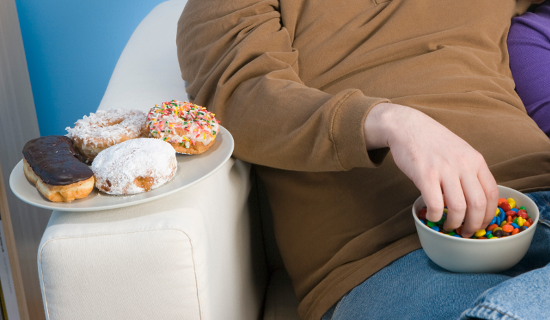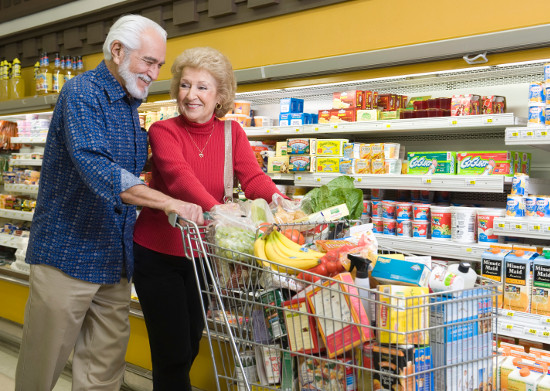Eating healthy is a vital part of staying fit and active during your senior years. However, certain things that you think that are healthy might not turn out to be healthy at all. A lot of food that we perceive as “good” can actually be detrimental to a senior’s health. Thankfully, most senior living communities‘ catering services make sure that seniors avoid these negatively impacting foods. However, there are lots of seniors out there that prepare and cook their own meals. Because of that, they’re at risk at consuming foods that are non-beneficial to them. The following guide can show seniors on what foods they should avoid and what foods they should consume more of.
Foods Seniors Should Avoid

While some of these foods were some of senior’s favorites while growing up, it might be time to let go of them or at least limit their consumption. It should be noted that if senior living communities’ catering services are serving meals with these foods in them, you should notify them or at least order meals without these ingredients.
Alcohol
While a drink of wine or a can of light beer might be beneficial from time to time (like reducing risks of heart attack or stroke), over consumption can lead to bigger problems. Alcohol can raise a senior’s blood pressure and disrupt sleeping patterns. If the senior is diagnosed with diabetes, they might get hypoglycemia from alcohol. Additionally, alcohol can negatively affect medications, making things worse for overall health.
Caffeinated Beverages
Caffeinated beverages may not be a problem for all seniors, but some members of senior living communities are known to have problems with it. Some feel anxious or on edge while under the influence of caffeine. Additionally, seniors who have too much caffeine might have higher heart rates and sleeping problems. Which is why it’s encouraging to drink less and/or switch to caffeine-free beverages.
Raw Sprouts
Alfalfa sprouts, mung bean sprouts, and other kinds of sprouts are a great source of Vitamin B and other bodily essentials. However, when eaten raw they can be a health risk for seniors with weak immunity systems. This is because of the likelihood of holding certain bacteria from their warm, humid environments. The way around this is to have them cooked well before eating them.
Certain Cheeses
Soft Cheeses like brie and the many varieties of blue cheeses are known to come from unpasteurized milk, which can contain loads of bacteria, which is bad for seniors with low immunity. They may have been a favorite when seniors were young, but as they age, their body changes. And with the changes comes the inability to withstand the bacteria of certain cheeses. Seniors should avoid these cheeses and focus on cheeses with lots of Vitamin D and other benefits. Some of these better cheeses include Swiss cheese and sharp cheddar.
Over-cooked Beef and Pork
Some meats like lean pork chops and steaks can make some difficulty for seniors. Mainly because of the amount of effort it takes for seniors to chew on them. Some seniors may opt for softer meats like hamburgers but they don’t provide the same amount of nutrition. Consider slightly less cooked meats that are still nutritious but easier to take in.
Seafood, mainly Crustaceans (Oysters, Clams, etc.)
Raw seafoods may have vitamins and minerals but they do contain a lot of bacteria in them. Seniors might develop food poisoning, dehydration, diarrhea, and other illnesses after consuming bad seafood. The best option is to cook them and making sure the seafood is from a reputable source.
Under Cooked Eggs
Consuming eggs might help build muscle and grand seniors more energy, but eating them raw/under cooked is a bad idea. For many in senior living communities, consuming under cooked or raw eggs can lead to salmonella and other health risks. If anything, make sure to eat fully cooked eggs (like boiled or scrambled) and avoid meals with under cooked eggs. If you really want meals under cooked eggs, consider organic and well pasteurized eggs.
Processed Foods
The Center for Disease Control recommends how much sodium people intake. This is vital for anyone over the age of fifty-one, which includes seniors, as the daily limit is 2,300 mg of sodium per day. If your doctor has mentioned that you are at a high risk of certain illnesses (like heart disease and high blood pressure), you should try to limit yourself to around 1,500 mg a day. The biggest culprit of high sodium foods are processed foods like frozen meals, junk food, condiments (like salad dressings), and certain processed meats. Seniors should look towards low sodium alternatives more often at their age.
Additional Steps Regarding Food and Those in Senior Living Communities

For many seniors, it’s hard giving up the foods they love. However it’s just a part of becoming older. However, there might be hope, not all the previously listed foods might not be a detriment to your health or lifestyle. Consider talking to your doctor, dietician, and/or health specialist as they know more on what is best for you and your body. Also consider finding more of the food your community might provide. While many senior living communities hire the best catering services, the best might have something that you might not want eating. With a little planning and knowledge, you should be able to enjoy the best years in the best health and best taste.





